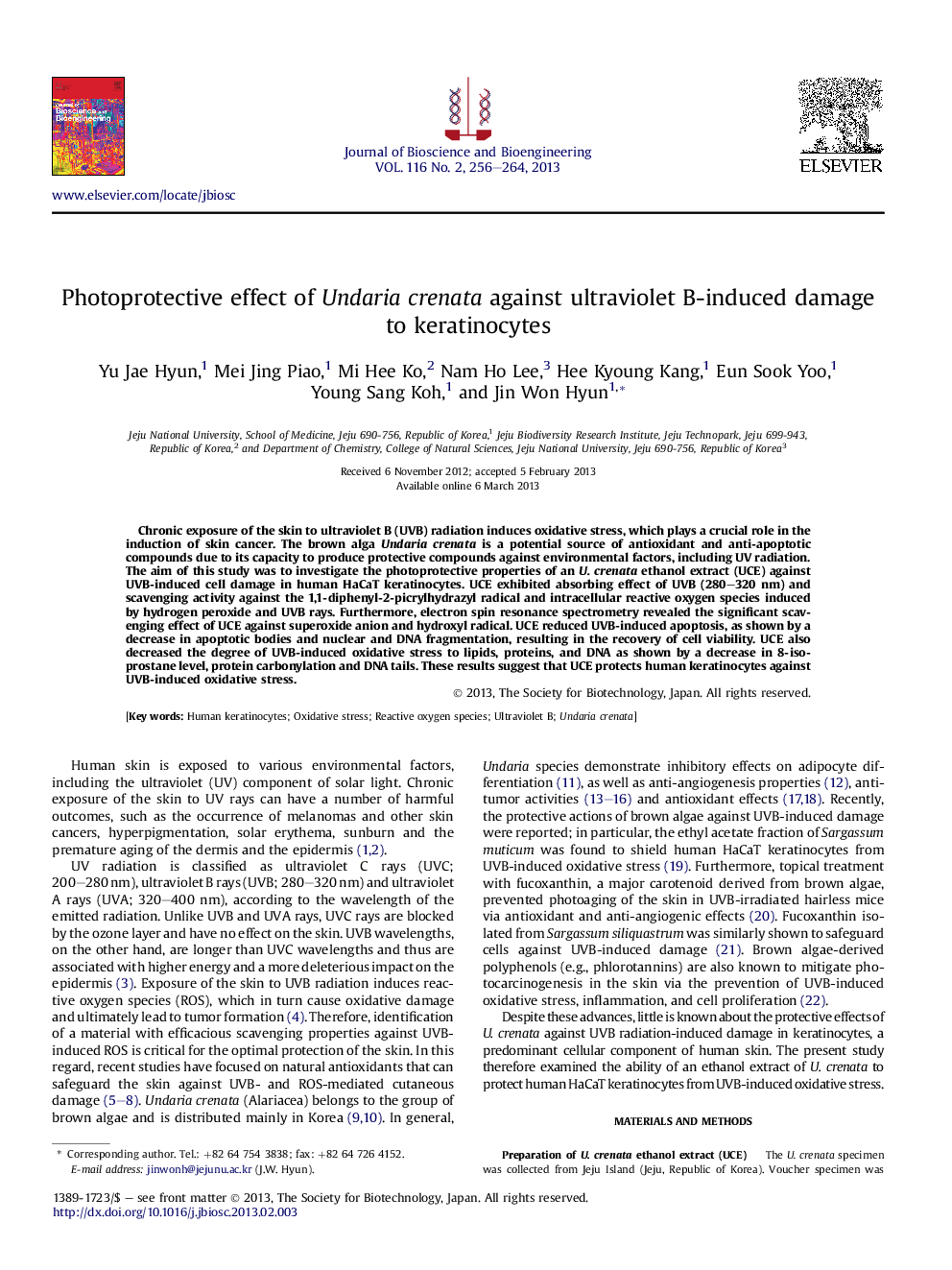| Article ID | Journal | Published Year | Pages | File Type |
|---|---|---|---|---|
| 20631 | Journal of Bioscience and Bioengineering | 2013 | 9 Pages |
Chronic exposure of the skin to ultraviolet B (UVB) radiation induces oxidative stress, which plays a crucial role in the induction of skin cancer. The brown alga Undaria crenata is a potential source of antioxidant and anti-apoptotic compounds due to its capacity to produce protective compounds against environmental factors, including UV radiation. The aim of this study was to investigate the photoprotective properties of an U. crenata ethanol extract (UCE) against UVB-induced cell damage in human HaCaT keratinocytes. UCE exhibited absorbing effect of UVB (280–320 nm) and scavenging activity against the 1,1-diphenyl-2-picrylhydrazyl radical and intracellular reactive oxygen species induced by hydrogen peroxide and UVB rays. Furthermore, electron spin resonance spectrometry revealed the significant scavenging effect of UCE against superoxide anion and hydroxyl radical. UCE reduced UVB-induced apoptosis, as shown by a decrease in apoptotic bodies and nuclear and DNA fragmentation, resulting in the recovery of cell viability. UCE also decreased the degree of UVB-induced oxidative stress to lipids, proteins, and DNA as shown by a decrease in 8-isoprostane level, protein carbonylation and DNA tails. These results suggest that UCE protects human keratinocytes against UVB-induced oxidative stress.
